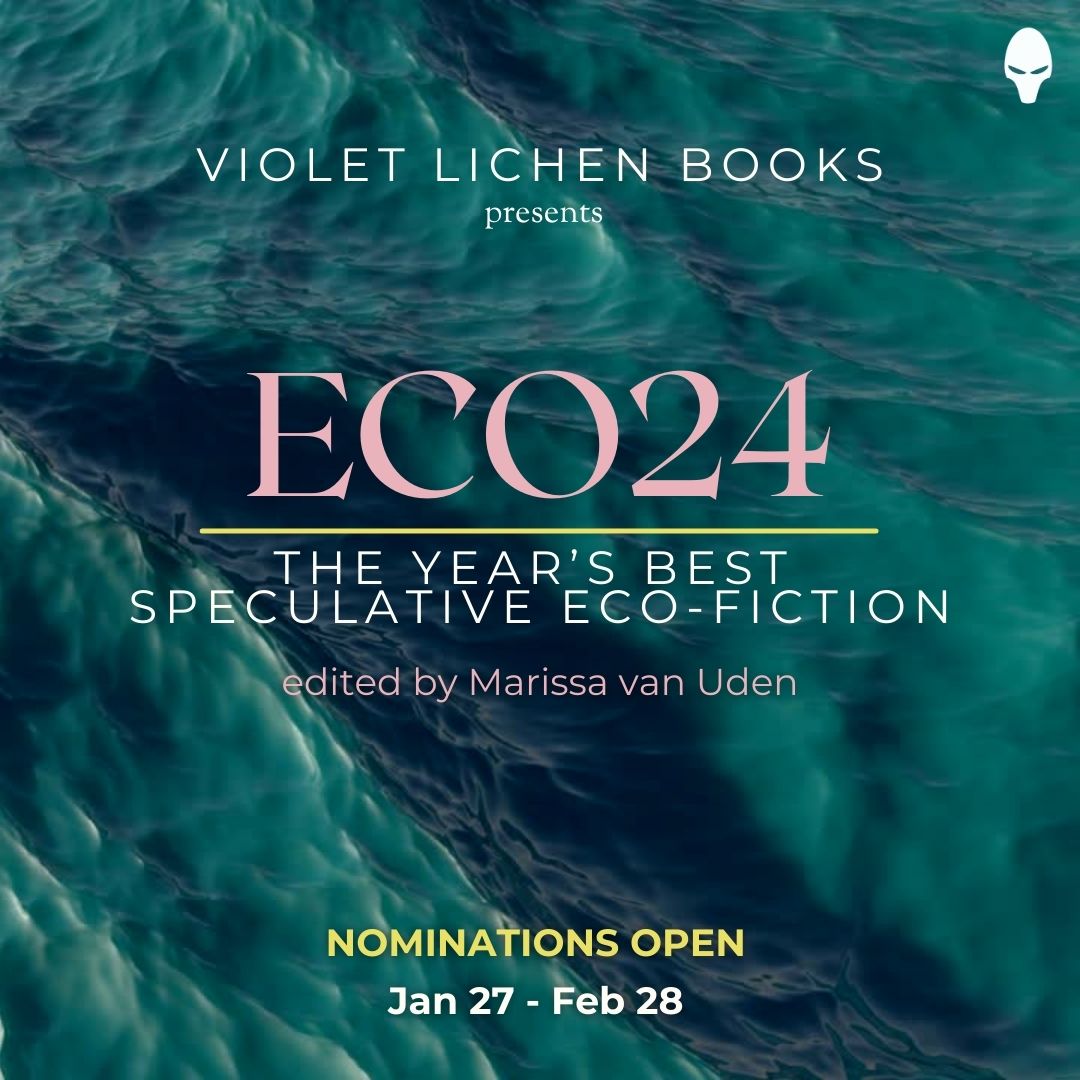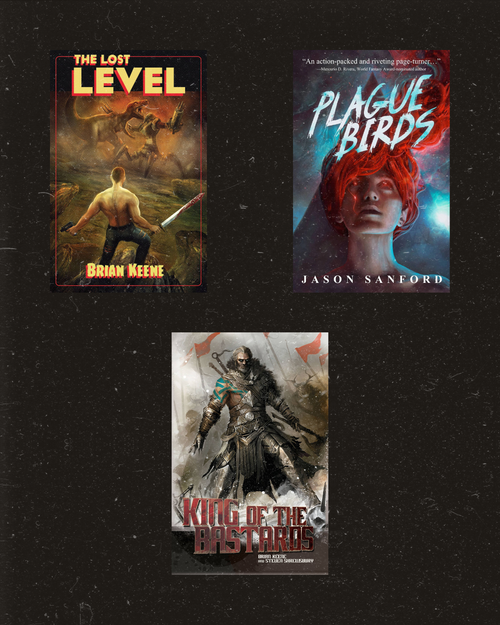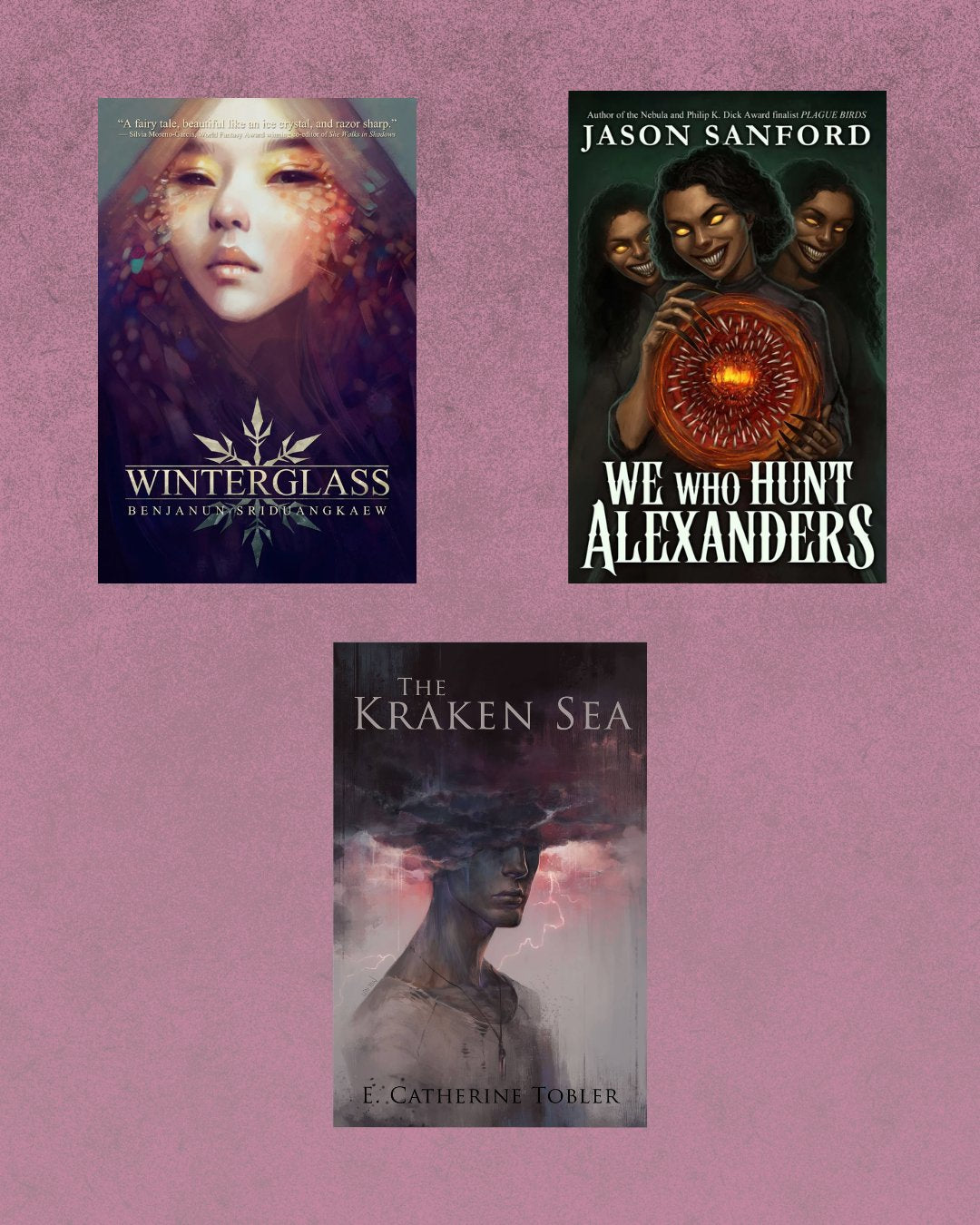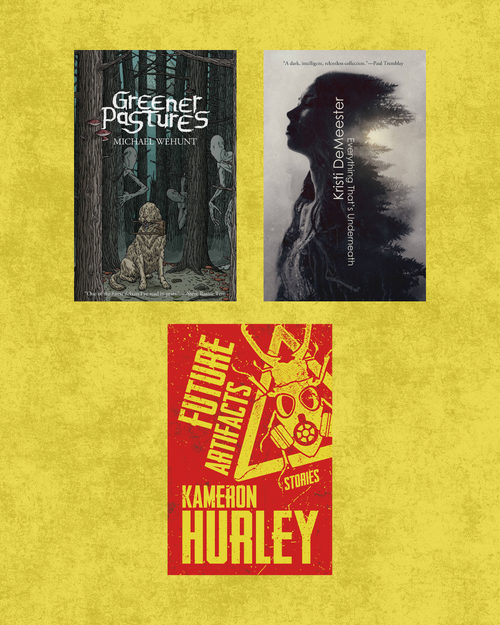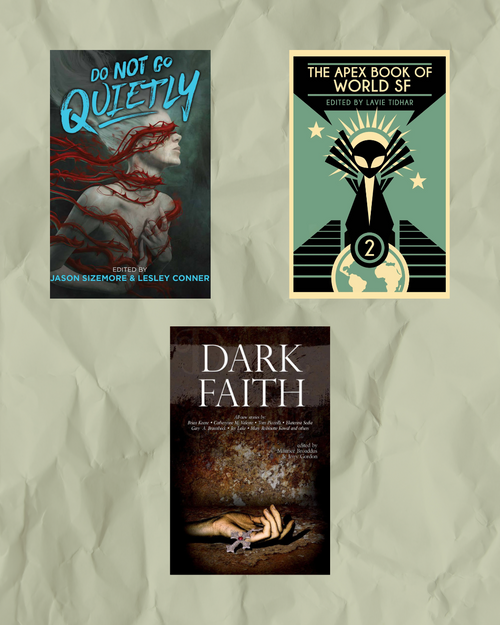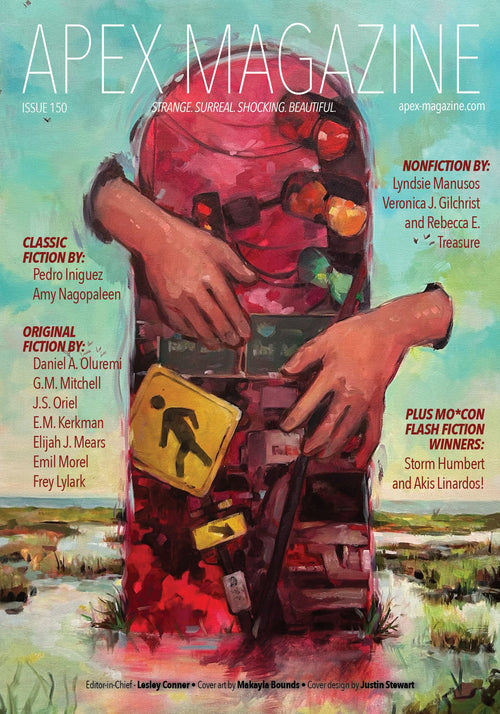Today is World Wildlife Day, celebrated on March 3rd to raise awareness of the world's wildlife and the importance of protecting it. In solidarity with this holiday, we at Apex have an interview with Marissa van Uden, the editor of Violet Lichen Books, about the upcoming anthology, ECO24: The Year's Best Speculative Ecofiction, coming this November.
____
Apex Book Company: You could've curated an anthology focused on nearly anything, but you chose speculative ecofiction. Why that specific genre?
Marissa van Uden: I've loved ecofiction since long before I knew the name for it. As a kid, Watership Down was one of my most loved (and tattered) books, and most of my other favorite reads also fall into this genre: Dune by Frank Herbert, The Drowned World by JG Ballard, The Willows by Algernon Blackwood, Do Androids Dream of Electric Sheep by Philip K. Dick, Migrations by Charlotte McCoughney, The Southern Reach series and other works by Jeff VanderMeer.
Ecofiction perfectly meshes my two biggest passions: the natural world and the art of story. As an editor, getting to more deeply engage with the genre and discuss all the new stories published in it every year is literally a dream job.
Apex Book Company: You've worked on other anthologies before. What makes ECO24: The Year's Best Speculative Ecofiction different from all the rest?
Marissa van Uden: Every anthology is its own unique thing, but one of the biggest differences for me this time is that it's a best-of anthology rather than selecting from open submissions. This means we're curating from stories that other editors have already fallen in love with and wanted to share with their readers.
I love that it's not only a showcase of some of the best ecofiction being written each year but also a reflection of what is currently resonating with a diverse range of editors and readers. As far as I know, it's the first and only "best of" anthology focused on ecofiction.
Apex Book Company: Can you give us a sneak peek of what to expect from the anthology? Maybe a hint at one or two of the stories contained within?
Marissa van Uden: It's still too early to speak on what will ultimately make it in, but the ECO24 reading team and I are looking for stories that really connect on an emotional level, as well as being original, compelling, and well written.
Some people divide ecofiction into a "hopeful v.s. pessimistic" binary, but we're looking for the full range of mood and tone—not just across the stories in the anthology but within the stories as well. That complex interweaving of dark and light, hope and grief, beauty and horror, is a huge part of what it means to exist in the natural world, so we love to see that reflected in the stories.
Apex Book Company: Okay, getting serious now. Why is it important that the kinds of stories published in ECO24: The Year's Best Speculative Ecofiction continue to be written? What does speculative ecofiction add to the world?
Marissa van Uden: For some reason, many people have simply accepted the idea sold to us by the fossil fuel companies that, among all of the incredibly intelligent, highly skilled, insightful humans across this entire planet, no one can quite say for sure whether climate change is real, or caused by humans, or how to turn things around. Which, of course, is completely bollocks. We've known for decades what climate change is, who is causing it (not just handwavey "humans" but specifically which group of them), and how to stop it.
Similarly, other industries have sold us on the idea that certain animals are to be used and treated as products or like machines, not sentient, emotional beings who clearly share so many of the same internal experiences we do. Those with a vested interest in this perspective made anthropomorphizing a bad word, rather than as a flawed but useful way to imagine those many shared experiences. It's amazing how easily you can teach people not to see.
I don't know if great ecofiction is a strong driver for more people to actually take action and try to save what little is left of our natural world... The studies seem to say, maybe a bit? What I think it can do is reconnect us with other species and our true home (the natural world), help us push past those strong mental barriers that various industries have worked so hard to build into our collective conscious, and remind us of the fragile, irreplaceable, and completely essential living world they've been chewing up while we're distracted with their products. That seems important.
Apex Book Company: A fun one to round it out! What is your favorite living thing in wildlife? It can be an animal, insect, plant, fungi, and the stranger, the better!
Marissa van Uden: I have a new favorite every day—all creatures are so cool. But for today I'll say the black-capped chickadee, because they have the cutest oversized heads and their brains wax and wane with the seasons. They literally grow their brains by nearly a third over the summer and fall, loading up their memory with the hiding places of thousands of seeds, and then shed those new brain cells in spring and start over fresh. I don't know, that just seems like such a magical ability to me.
On top of that, they morph their bodies, too. They survive the cold harsh winters by having a body weight that waxes and wanes over a twenty-four-hour cycle. After eating from their secret stashes over the day, they gain like 10% of their bodyweight in fat tissue. Then at night when the temps drop, they power down into regulated hypothermia and shiver to burn up the body fat and produce heat. Fluffy little heat balls!
Ten percent of your bodyweight in a day is pretty wild. If we were like chickadees, we'd have to carry a whole different size of clothing to wear later in the day. And I guess the whole shivering all night thing would make us kinda weird to sleep next to.
____
To learn more about submissions for ECO24: The Year's Best Speculative Ecofiction, click here!
____
About Marissa

Marissa van Uden is a New Zealander who is now living her best bog-witch life in Vermont, in a little cabin in the woods. She is a writer, anthologist, and freelance editor with more than fifteen years experience in publishing. Her anthologies include Apex Magazine's Strange Microfiction series (Strange Libations, Strange Machines, and Strange Locations) and The Off-Season: An Anthology of Coastal New Weird (2024). Her fiction has appeared in Vastarian Literary Journal, Dark Matter Magazine, Zero Dark Thirty, and Los Suelos. She is also an associate editor and the staff interviewer for Apex Magazine. She loves weird and disquieting fiction, biodiversity, and eerie forests filled with strange fungi.
____
Happy World Wildlife Day from Apex Book Company!









